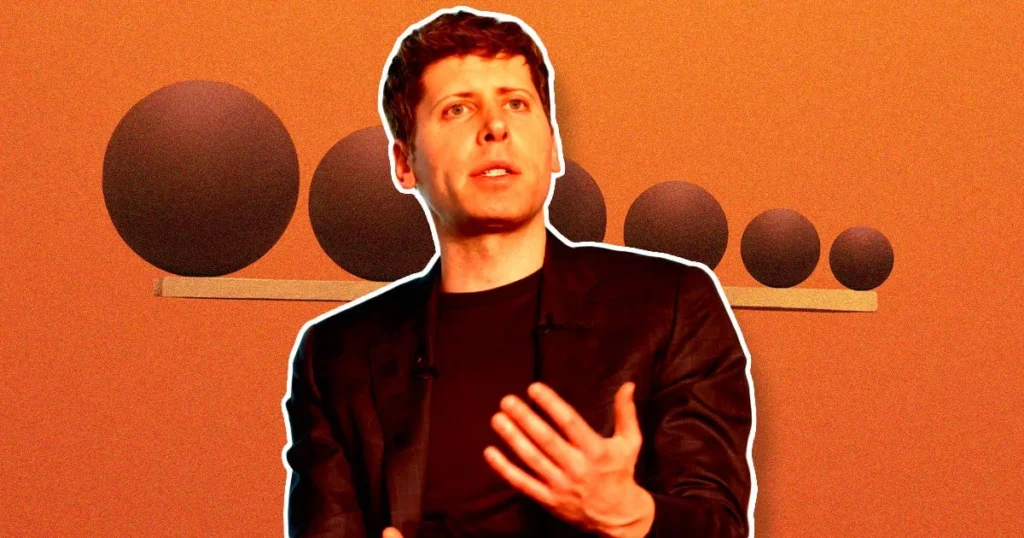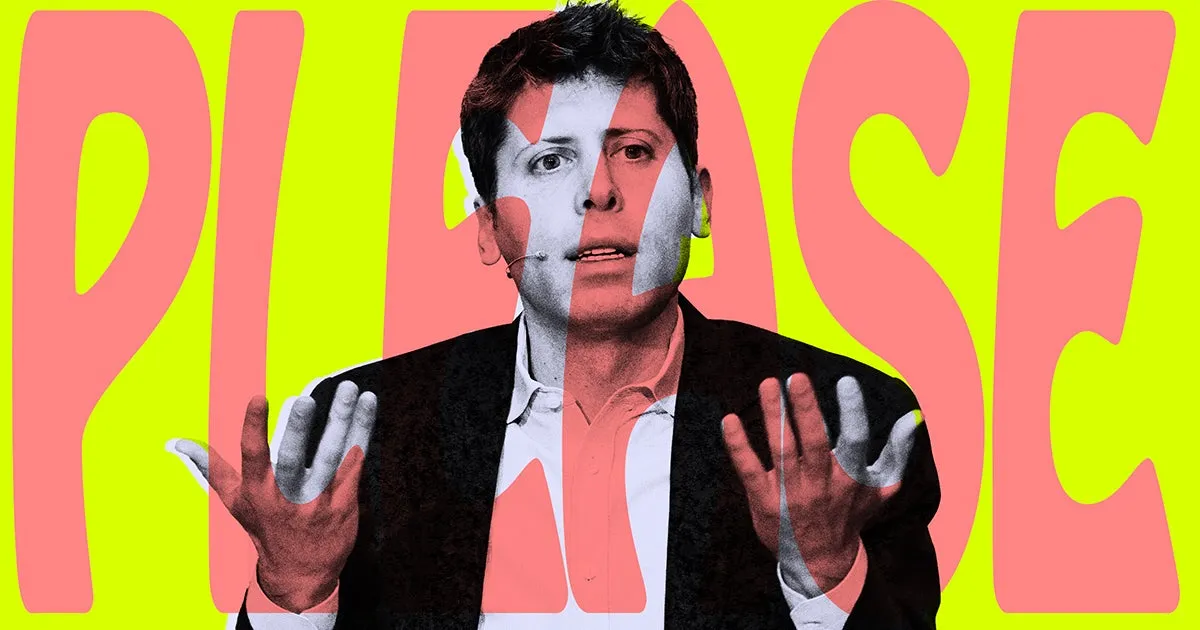
In the world of AI, it’s often easy to forget that every little interaction with a chatbot or virtual assistant comes with a cost. Sam Altman, CEO of OpenAI, recently revealed a surprising truth: the polite expressions we use when chatting with AI, such as “please” and “thank you,” are actually costing his company millions in electricity and computing power.

Altman shared his thoughts on the matter after a user on X (formerly Twitter) raised the question of how much OpenAI has spent on electricity due to these polite interactions. In his response, Altman admitted, “It’s tens of millions of dollars well spent,” emphasizing that there’s more to these seemingly trivial pleasantries than meets the eye.
1. The Unexpected Impact of AI Etiquette on OpenAI’s Budget
It may seem like a small, harmless act to say “please” or “thank you” to an AI chatbot, but Altman’s statement brings attention to a hidden reality. The massive computing power required to process these words is significant, especially given the sheer volume of interactions taking place daily.
While this might sound like an issue confined to corporate profits, the environmental consequences are even more pressing. OpenAI’s systems, which are powered by vast data centers, consume an enormous amount of electricity to perform basic functions—polite or not.
2. Microsoft’s Kurtis Beavers on the Power of Politeness in AI
For some, the notion of using polite language with AI may feel redundant, but there are advocates who believe it plays a meaningful role in the interaction. Kurtis Beavers, a design manager at Microsoft, argues that using courteous language when communicating with AI actually helps set the tone for the output. Beavers highlights that a chatbot’s responses can mirror the politeness, professionalism, and clarity of the prompts it receives.
This idea aligns with a memo from Microsoft WorkLab, which notes that “when it clocks politeness, it’s more likely to be polite back.” According to Beavers and others, the collaborative nature of AI-driven interactions is shaped by these subtle cues. While the algorithms themselves are not sentient, their ability to reflect human-like behavior can influence the quality of their responses.
3. AI Etiquette in the Age of “Big Data” and Environmental Costs
The practice of using polite language with AI may seem like an ethical decision, but it comes with significant environmental costs. A 2024 study by The Washington Post, in collaboration with researchers from the University of California, revealed just how energy-intensive AI interactions are. For instance, generating a simple 100-word email through AI requires 0.14 kilowatt-hours of electricity, enough to power 14 LED lights for one hour.
This may not sound like much, but when multiplied by the millions of emails, searches, and queries processed by AI models like ChatGPT every day, the environmental toll becomes staggering. According to researchers, if you were to send one AI-generated email a week for a year, you’d consume enough electricity to power nine households in Washington DC for an hour.
4. The Hidden Environmental Price of AI’s Daily Usage

The larger implications of these findings are clear: every AI query, every prompt, every polite request contributes to a growing environmental footprint. With AI now integrated into nearly every aspect of our lives, the energy demand is skyrocketing. Data centers—the backbone of AI operations—account for about 2 percent of the world’s total energy consumption, a percentage that is only expected to grow as artificial intelligence becomes even more pervasive.
This leads to a difficult question: is the cost of politeness worth it? While AI continues to evolve and improve, the energy consumption behind its operation raises serious concerns, especially when those costs are tied to seemingly insignificant actions like saying “please” and “thank you.”
5. The Future of AI Etiquette: Efficiency vs. Politeness
While the debate over AI etiquette may seem trivial in the grand scheme of things, it’s indicative of a much larger issue—the environmental impact of AI’s growing presence. As we continue to interact with chatbots and other virtual assistants, it’s essential to consider the consequences of each query. Could we be more mindful of the energy we’re consuming with each interaction?
For now, Altman’s comment about the costs associated with AI etiquette serves as a reminder that the tools we use daily come with unseen consequences. Perhaps, the next time you’re chatting with your AI assistant, you’ll consider skipping the pleasantries. It might just save you—and the planet—a little bit of energy.
Ultimately, the future of AI may not only depend on innovation and machine learning, but also on how we manage its environmental impact. Whether or not AI will ever experience a “rebellion” due to too many “thank yous” remains to be seen. However, the question of whether we can make our AI interactions more energy-efficient is something worth pondering.
